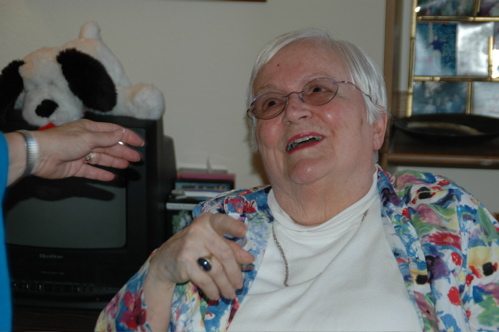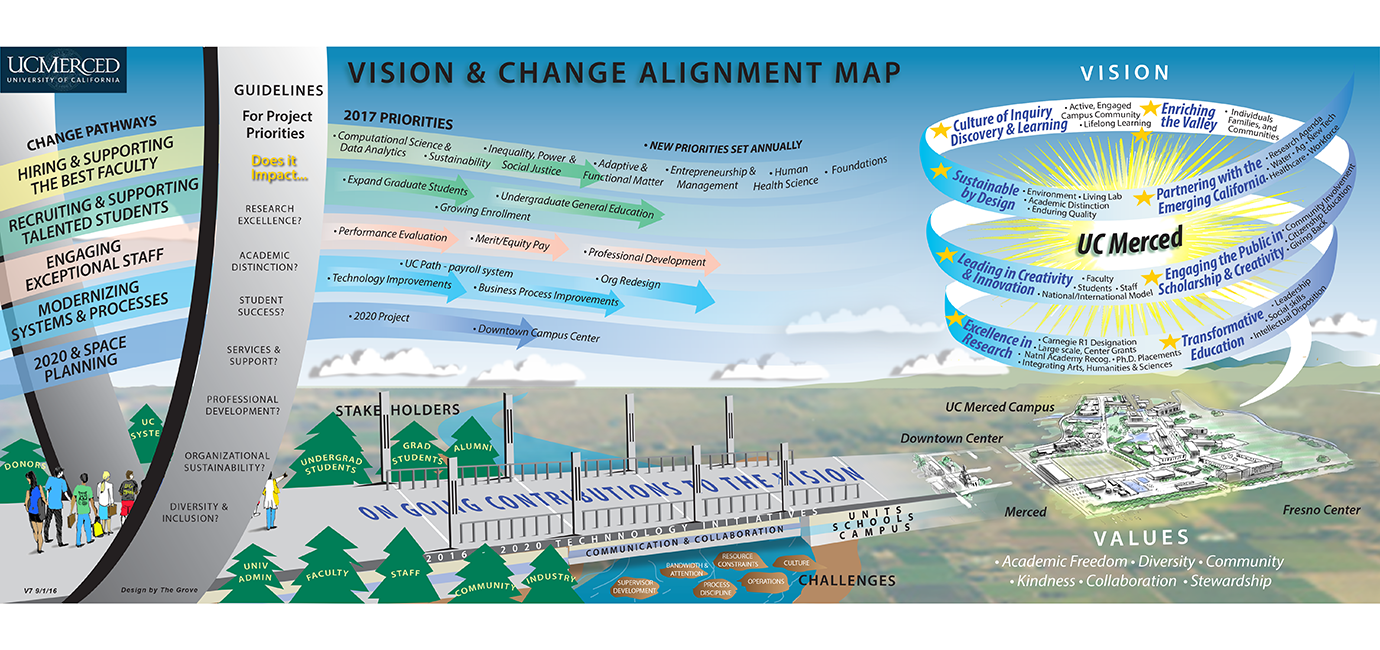Remembering for Mom
After a month of client trips, to Seattle, England, New Jersey, and Chicago, I finally am on vacation for a week and half. Susan went up to Portland to see our grandson Reid, so I faced an open weekend.
What called to me was driving to Sacramento to see my 91 year-old mother and visit John, my brother, who lives in Placerville. This post was stimulated by all the reflections about aging, Mom, love and the surprises that wait for us in the midst of forgetfulness.

My observing ego could tell I was resisting going over. Real, gritty family life is so complex, especially around challenges of health and old age. I don’t need to go see Sicko to understand what our generation of boomers is heading into. I’ve been on the front lines with elder care for seven years now. But this trip turns out to not be a story about elder care and its challenges, but about the love and surprises that can come through the crumbling of life’s predictabilities.
Visiting Mom in Sacramento
Dorothy, my mother, lives at Sunrise Assisted Living in Sacramento. I am her “durable power of attorney” and take care of all her business affairs now that she has no short-term memory and fairly advanced dementia. My brother John and his wife Anne, who work in Sacramento, take care of the personal care assistance, health issues, and any issues with Sunrise.
I arrived at 5:00 after two and a half hours on the road coming over from San Francisco. The traffic to the valley was horrible, and getting worse as more and more people move up into the foothills and spread out into the farmlands. There may be a housing slump right now, but the sea of immigrants to America and refugees from the expensive urban areas on the coast will not abate. All I have to do is think about Tokyo and Beijing to appreciate what is possible in the future.
Mom was sitting in her wheelchair at a table with another woman, Edwina, a 98-year-old woman who clear headed but fairly deaf. She was a rancher most of her life up in Sutter County. Her caregiver Ille was there as well with an empty chair for me that Ille had scheduled.
Everyone eats together at about five tables in a great room, half of which is for dining and table stuff, and the other includes sofas aimed at a big television. Rooms ring this central area, allowing a few staff to keep an eye on the residents. Dinner had already begun. As I came in the eyes of those who are still able to see well and notice things turned and followed me. Not a lot of outside people come here. When they do, it’s an event. Nobody was talking or making noise, just eating. I would guess most of the folks were in their late 80s or 90s.
As I sat down Mom turned toward me and gave a beautiful, twinkly smile. She looked in the pink of health! Her long life of clean living (no smoking, drinking, or eating disorders) has left her healthy except for her dementia. That has left her imbalanced so she can’t walk alone, retaining fluids because she can’t exercise, and fused up in her neck vertebrate so she can’t really turn her head. But inside this rigidity are a strong heart and clear organs, and many parts of the Mother I know and love. Discovering what is going and what is still there is the adventure of a visit like this.
“Hello John,” she beamed. (John comes and sees here very noon hour during the week).
“I’m David,” I laughed.
“Oh!” she laughed.
“Where’s Ann?” she asked.
“That’s John’s wife,” I said.
“Are you married?” she said.
“Yes, to Susan,” I replied.
“Oh yes, Susan!”
Unconventional Conversing
Mom really doesn’t understand too much any more. The curious thing is, her common sense and humor and social intelligence are intact in spite of the scrambling of her memory. I have begun to see that she navigates with another sense deeper than thinking in the conventional way. Opening to more intuitive ways of knowing has been of great interest to me, and now I am experiencing having to rely on them with her.
At dinner we spent about an hour chatting away. Mom is the only one in the place talking, and she says pretty much anything that is on her mind. She’s always been social and was a wonderful minister’s wife when she was married to Dad. She will chat up anyone, even now, and with her sense of propriety gone, her conversation is like a balloon shooting around the room after one lets go holding the neck.
“Where’s Susan?” she said.
“In Portland, seeing Reid.” I replied.
“Who is Reid?” she asked again.
“He’s Phillip’s new son.” I said again.
“Who is Phillip?” she asked again.
“He’s our son.” I said again.
“How many children do you have?”
“We have four,” I said.
“You DO?” she said, raising her eyebrows in amazement.
“You took all my brains,” she said (for the umpteenth time).
Then she announced loudly to Edwina, “This is my oldest son. He’s a smart one.”
We laughed.
Dorothy’s long-term memory flicks in and out with patchy accuracy. In context she can remember some things now, but can’t access them at will. No short-term memory is working. Every ten minutes it’s Groundhog Day, starting all over again.
I used to be really upset by this, but the years of navigating the changes have opened up my compassion—the channel of feeling and love which still works for us. I look at Mom and she looks and me and the love flows. I don’t mind being her memory now. I don’t mind retelling the stories over and over. She laughs and loves them anew each time.
I wonder if this is what “enlightenment is,” being totally in the present moment. It’s beginner’s mind for real. I’m surprised at how fun it can be when I yield and drop my expectations.
“Fly Me to the Moon”
Mom has a reputation for going straight at people. One helper has long, gel-coated hair, a nose ring, and a flouncy, sassy attitude. “Hey rascal,” she says to Mom. Mom sasses back. “If you come over here I’ll get some scissors and cut your hair!” Mom says. She doesn’t let anyone off.
One of the people helping this particular evening was a short, stern looking woman with very short hair. She barked out requests and orders—no wasted words. As she passed by Mom would say, in a loud voice “she’s tough.” Then she would turn to me, give a power sign with her arm, and say, “I’m tough,” and laugh. “I could spank YOU,” she said. Several people were watching her like they watch TV, with uninterpretable stares. As my own sense of social propriety sputtered and winced, I remembered that her mother was Clara Ida Miller Egly, a Pennsylvania Dutch woman who never complimented and considered criticism a love tap.
After dessert the “tough” woman came by to get our plates. I looked her in the face and said, “Can I make a request?” I could see her stiffen. “Yes.” She said, waiting. “Can I play the piano?” I asked. A look of amazement passed over her. She broke in to a big smile. “Of course, that would be great.” She said. So old Toughy has a soft side too, as I had suspected.
I went over and sat down to play. A woman named Margaret pulled up beside. I put Mom beside me in her wheelchair. I began with a soft “America Suite” taught to be by Doug McKechnie. Then I played the song Susan and I danced to at our wedding 40 years ago, “Fly Me to The Moon.” I then went through my repertoire or ragtime and jazz, which only goes for about 30 minutes since I don’t practice much. And I pushed out into just making things up.
I noticed that everyone was hanging on every note. I turned around, and the entire room was glued on me. I felt like Yani at the Parthenon. My heart skipped a beat as I turned back and played some more. As I played, the spirit of my youngest brother Gordon, poured through.
Remembering My Brother Gordon
Gordon, Mom’s fourth son, was the “accident” in our family, at least that was the story Mom would tell everyone upon introduction. He was the only one with red hair. He was born with bad valves in the veins in his leg that eventually led to painful rounds of phlebitis and infection, debilitation, drinking, loss of his job, and a downward spiral that ended up in his taking his own life at the age of 48. But he was a gifted piano player, artist, and all around “genius” at building and creating anything. He made completely original music all his life.
When he died, in the midst of the incredible pain and soul-searching that our family went through, I found that his music began to channel through me when I played. It’s my way of communing with him now. I mentioned this to my Mom as I concluded. I did not yet have an inkling of the surprise that awaited me a few hours later.
We went back to Mom’s room and shared pictures of our family on my computer. She wanted to see what Susan looked like. At each one she’d light up with pleasure. “That’s Susan!” I continued to relate the names and the old times, and feeling her love of me, and being grateful for this moment. In spite of all my resistance, this time was turning out to be a blessed one, and my heart was open and full.
Ille came back from an errand she went on around 7:30, and I left to go up to stay with John and Anne at their home in Placerville. I would see Mom again the next day coming back off the hill and going back to Oakland to pick up Susan at the airport.
“I’ll see you again tomorrow!” I said. “Good!” Mom said. “I like it when you visit.” My heart melted a bit.
Waking Up to Deep Memory
I got to John’s about an hour later. His son Logan came over to see Uncle David before he went back to college near Seattle. We sat and talked about Mom and all kinds of things for about three hours. In that time John reminded me that this very day was the anniversary of Gordon’s passing 10 years earlier.
I could feel goosebumps rising. So that is why I came over! So that is why I was playing the piano. Some part of me knew, and was called. How could I forget that, I thought, running through my memories of the afternoon and being Mom’s memory? Yet here I was, not remembering something this big—but yet not forgetting either, for part of my psyche knew that being with Mom, and with John and Ann, on this particular day was where I needed to be.
I think that is the same channel my Mom is on now. It feels like the big channel, the one produced by Great Spirit and all its manifestations. It emerges in the very face of the unpredictable and the uncertain. It is the gift that comes when the rest of life begins falling apart.


No Comments